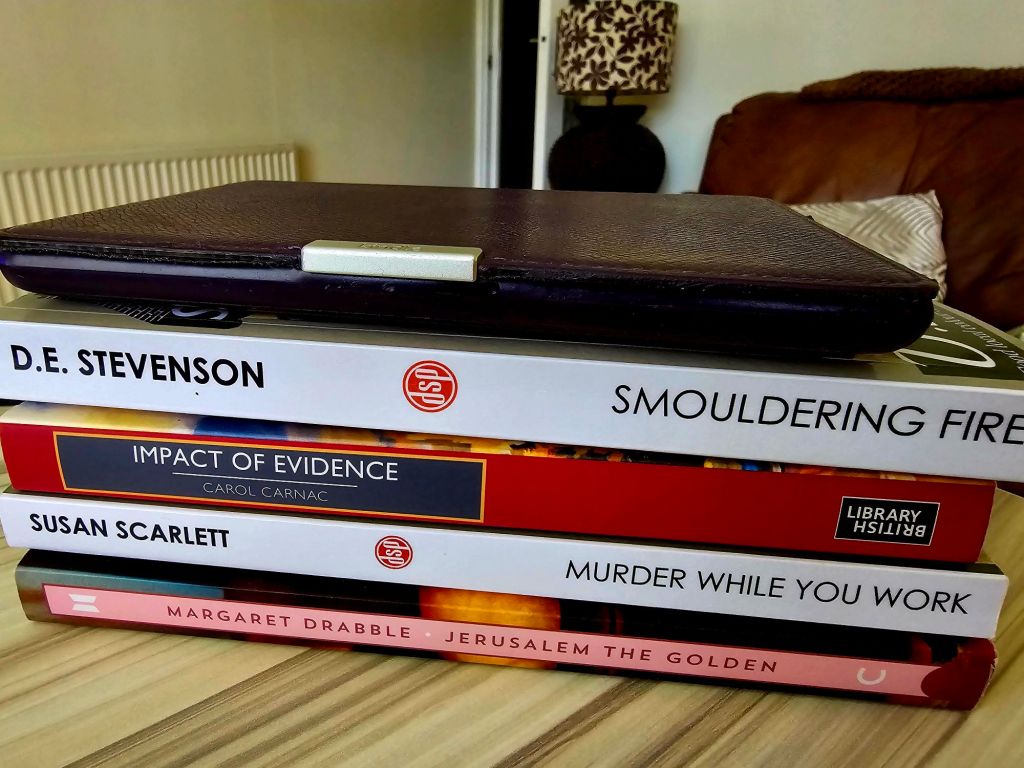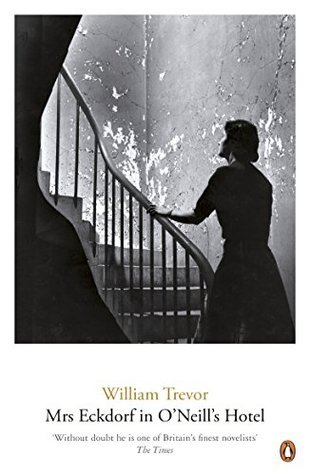March has seen me slump, I have been reading – fairly slowly – but the blog has been ignored more than I would like. I have again really struggled to engage with blogs and social media. I have days when I try to claw it back, post something on social media, read a few blog posts, but it’s been a real struggle even to do that. I think there are a lot of people feeling like this these days, looking outwards the world is not a very happy place and even when we try to protect ourselves a little from it – it seeps in. Added to that, I have been very fatigued, generally unmotivated and down.
Life never really gets any easier – but spring is here, sort of – and I have joined a virtual WI group, to meet other people. I bought a new power chair this week, which should make getting out easier, as I won’t need people to push me about. I am away for a few days with family next week. A change of scene will be a real boost, I think, and I hope it will buoy me up going forward.
Back to the books!
I have been reading, though I realise now that it’s been a fairly slow reading month which probably fits in with how I have been feeling around everything else. Posting this a couple of days before the end of the month, as I know I will finish my last book by the 31st, but do not have time for another one. So far this month I haven’t felt as if I wanted to write about anything that I have read in March. That is no reflection on the books though, I enjoyed all of them, I can only blame my mood.
Seven books read in March, three of those on Kindle, hence the small pile of books in the photo.
I started the month with my next Margaret Drabble novel, Jerusalem, the Golden (1967), my fourth one of the year, though I have only reviewed two of them. Clara has left her suffocating home in a small northern town for life and university in London. Here she becomes great friends with Clelia and her excitingly different bohemian family.
Murder While You Work by Susan Scarlett (1944) (aka Noel Streatfeild) was a lovely fun read and the first of two DSP books this month. Despite the title it’s not a typical mystery novel – it was this writer’s only attempt at the genre and I found it a compelling read. Set against the backdrop of a munitions factory, there is a mystery at the centre of the house where new recruit Judy is billeted, and the handsome Nick, himself engaged in important secret work, is determined to help her and make sure she comes to no harm.
My third read was inspired by the reviews of other bloggers. Blessings by Chukwuebuka Ibeh (2024) a coming of age novel from Nigeria. It’s a beautiful, heartbreaking piece about a young gay man. Having witnessed an intimate moment between his son and his new apprentice, Obiefuna’s father sends him to a harsh Christian boarding school. With chapters alternating between Obiefuna and his mother, Ibeh tells the story of this young man’s self-discovery and his mother’s pain over the loss of her son.
My next two reads were for Cathy’s Reading Ireland month. The Silence in the Garden by William Trevor (1988) was just a beautifully subtle novel. All the ingredients I associate with the best of William Trevor. In 1904, clergyman’s daughter Sarah Pollenfax arrived in Carriglas an island off the coast of Cork to act as governess to distant relatives. It is a magical time for Sarah, a wonderful time in an unforgettable place, which she returns to in her mind long afterwards. Thirty years later, after the First World War and the Irish Civil War have taken their toll, Sarah returns to Carriglas, and finds that there were things going on during those far off golden days of which she was completely unaware.
Old God’s Time by Sebastian Barry (2023) longlisted for the Booker Prize in 2023, is something of a slow burn. An intensely introspective, literary novel with some tough themes. Tom Kettle is a retired police officer now living in a lean-to flat annexed to a Victorian castle overlooking the Irish sea. When two former colleagues turn up at his door asking questions about a decades old case, Tom is pulled back into the past, his present life and the losses he has suffered are all tangled up with his memories of the past. Tom is quite an unreliable narrator and nothing is ever quite what it seems. A very impressive novel, beautifully written.
I thought a BLCC would be a good fit after the rigours of my previous read. Impact of Evidence by Carol Carnac (1954) was sent to me quite recently and I had thoroughly enjoyed Crossed Skis by Carol Carnac and some of the novels she wrote under the name E C R Lorac, this one I found a bit more plodding however. Carnac/Lorac is good at setting and atmosphere, and certainly that is one of the best things about this novel but some parts of the novel I felt were a bit padded out and I got a bit fed up with it at times. Set in the rural community of the Welsh borders which has been isolated for days by heavy snow and flooding. Old Dr Robinson is known as something of a menace on the roads, so when he collides with a jeep at a particularly dangerous junction it is almost as if it were an accident everyone had been waiting to happen. However, when the body of an unknown man is found in the back of the doctor’s car, who no one recognises and was clearly dead before the collision the police are called to investigate. It isn’t long before Chief Inspector Julian Rivers, ably assisted by Detective Inspector Lancing is on the case.
Smouldering Fire by D E Stevenson (1935) my second lovely DSP read of the month was an easy choice, as I needed something to sooth my weary soul. Set in the Scottish highlands, where Iain MacAslan has been forced to let his vast property to wealthy Londoner Mr Hetherington Smith for the hunting season. He is a self made man, whose wife was much happier when they were poor. Despite his heartbreak at having to see strangers in his house and on his land MacAslan elects to stay in a small cottage on the shores of the loch aided by his loyal keeper Donald and his wife Morag. The Hetherington Smiths bring quite a mixed group of guests with them, but it is to Linda Medworth and her young son that Iain finds himself drawn. I am still reading this, so I can’t yet comment on what is supposed to be a ‘shocking conclusion’ but I am certainly enjoying this slice of DES very much.
Looking ahead, I am planning on some Kindle reading next week while I am away, and I plan on reading another Margaret Drabble at some point. I shall probably be reading The Waterfall. I hope to join in with Karen and Simon’s 1937 club, the year my dad was born, but I don’t have any firm plans on what I’ll read yet.
In the meantime I hope all of you in the UK have a restful bank holiday weekend, happy Easter if you celebrate and let’s cross our fingers for some spring sunshine.
As ever I would love to hear what you have been reading.













